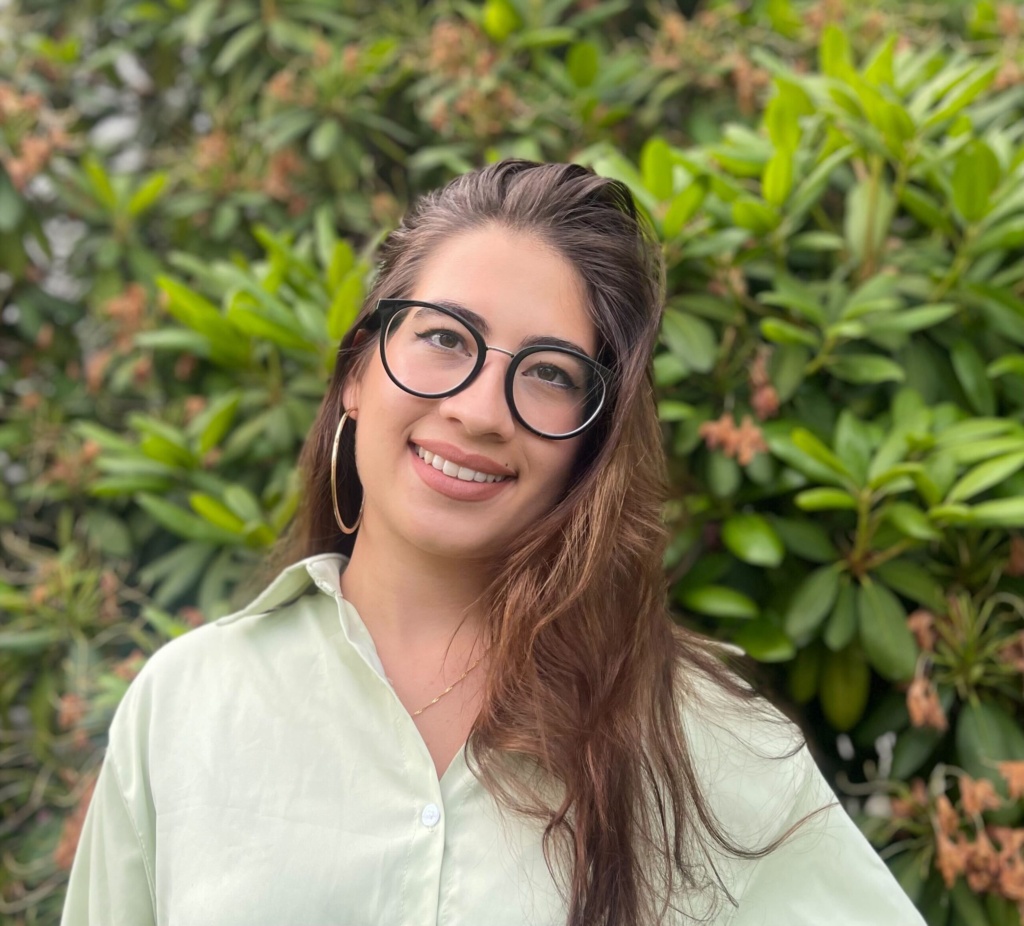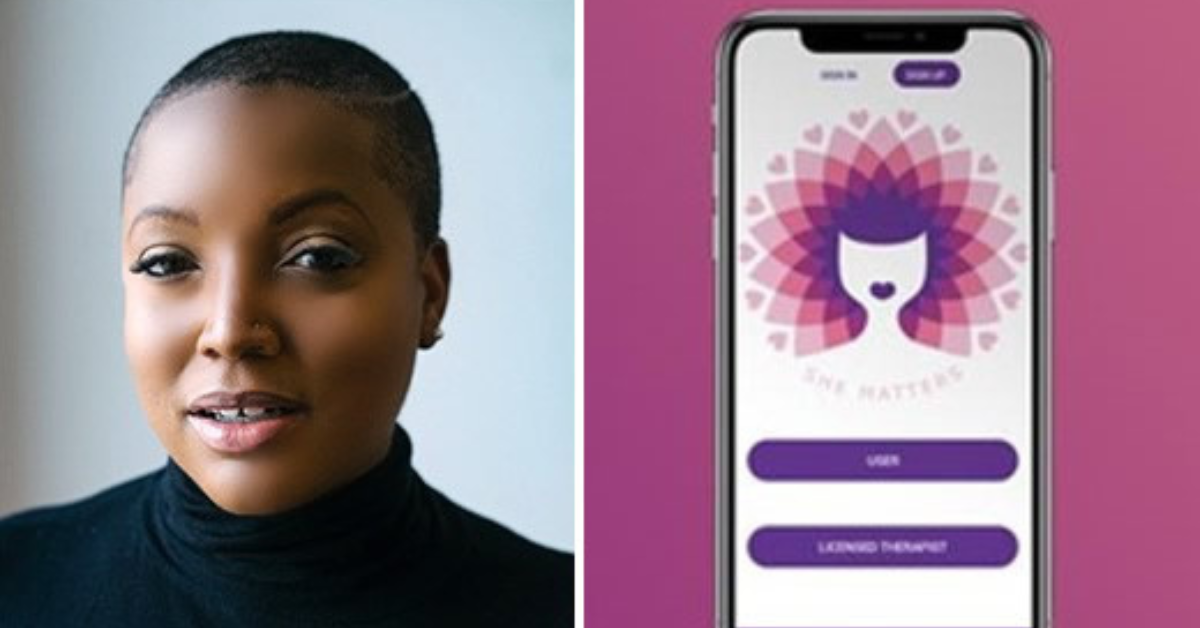By: Alesia Bani
KEY INSIGHTS
- While femtech funding is on the rise, reaching $1 billion in 2021, SheMatters founder said raising for her health platform to support Black mothers was still a struggle.
- Kapor Capital and Fearless Fund have invested in Black maternal health companies like Cayaba Care and Villie.
- Black women are three times more likely to die in connection to pregnancy or birth compared to white women, highlighting the need for additional care outside of the health care system.
Jade Kearney launched her startup SheMatters, a digital health platform that supports Black mothers, after having her first child and suffering from postpartum depression.
“I wasn’t getting help by the health care system, I wasn’t being helped by friends and family and I thought I can’t be the only Black woman experiencing this,” Kearney told The Plug, explaining she felt shame around her mental health struggles from people in her life and a lack of cultural competency from health care providers.
Black motherhood has seldom been treated with care and compassion in this nation.
Enslaved women were commodified for their ability to reproduce, and once Black babies were no longer profitable under slavery, the reproductive health of Black women continued to be severely neglected.
Forced sterilizations became so commonly performed on poor Black women that it was referred to as the “Mississippi appendectomy.” Today, Black women are still three times more likely to die in connection to pregnancy or birth.
Now, Black founders are developing their own platforms to address Black maternal mortality and provide alternative wrap-around care.
But Kearney said fundraising for SheMatters was an “agonizing” task. Kearney recently raised $1.5 million in seed round funding with investment from Chingona Ventures, The Fund, New York University and Techstars. Funding is going towards growing SheMatter’s team and its wearable technology.
Funding for femtech, which refers to women’s health software and tech-enabled products, has been on the rise, with global venture capital funding crossing $1 billion in 2021, according to Pitchbook. One of the reasons for this growth is the increased representation of women in venture capital.
However, it is unclear how much of that money has gone to Black founders or even women founders. One of the biggest femtech deals in 2021 was Flo’s $50 million Series B round. The company was co-founded by two white men.
Additionally, although women’s health has had an increase in funding, most of the capital is going to services that provide added “cherry on top” care, Ulili Onovakpuri, co-managing partner of Kapor Capital, an impact-focused venture capital firm, told The Plug.
“We’re seeing a lot go into more like additional services for moms who are well off versus our focus is on low-income moms who lack access to even the basic care,” Onovakpuri said.
Onovakpuri co-led Kapor Capital’s $126 million Fund III — the firm’s largest to date. Philadelphia-based Cayaba Care, a maternity support platform, is one of its portfolio companies.
Founded in 2020, Cayaba Care supports prenatal care through its “maternity navigators” who travel to patients’ homes or can be contacted virtually for care or advice. Additionally, Cayaba Care’s platform uses data provided by patients’ doctors to create personalized care plans.
The startup raised a $12 million Series A round in May led by Seae Ventures and Kapor Capital as well as investors Wellington Partners, Citi Impact Fund and Rhia Ventures.
“There are many factors that cause high risk for Black women in pregnancy and so many of the solutions that we were seeing were just addressing one part of the problem,” Onovakpuri said. “We really wanted to invest in a company that provided a full holistic approach.”
Onovakpuri has a particular interest in Cayaba Care because they have already served 1,000 women, have a physical headquarters in Philadelphia and two of the founders are Black doctors: Dr. Olan Soremekun and Dr. Mary E. Fleming.
“There’s a limited number of Black physicians and even less of Black physicians starting companies and so that really excited us because they had that firsthand experience,” Onovakpuri said. “Overall, it’s our goal to invest in companies who are having the biggest impact on those most in need and I think our investments in maternal health demonstrate that.”
Kapor Capital has also invested in maternal health companies Bloomlife, which provides remote personalized prenatal care, and New York-based Oula, which provides alternative pregnancy care through doulas and midwives for supported at-home labor. The founders of these companies are not Black but supporting Black mothers is part of their approach to care, Onovakpuri said.
Black women are also investing in other Black women founders of maternal health startups.
Fearless Fund, a venture capital firm built for women of color by women of color, recently hosted a $1 million pitch competition during its VC Summit in August. Its largest investment of $400,000 went to Villie, a digital product hub that connects birthing women to their families. Founder Kim Jolasun was inspired by her West African culture in developing Villie’s mission.
When investing in a startup, General Partner and Co-Founder of Fearless Fund Arian Simone, told The Plug the firm looks at four points: brand story, traction in the marketplace, the product and team.
“[Villie’s] standout factor, of course, was traction,” Simone said. “They have over 20,000 mothers on their waiting list looking to engage in the platform.”
The demand for these platforms is evident. SheMatters has served 3,000 mothers on its platform since launching, and although Black maternal health is at the forefront of her mission, founder Kearney said at the top of the year she plans to pivot. Plans are to rebrand under a more inclusive name “WeMatter” after another funding round. WeMatter will encompass other under-serviced groups including LGBTQ, trans, Asian and Latino women.
“There are so many other marginalized groups of people who could really use our framework to improve maternal health,” Kearney explained.

Alesia Bani
Alesia Bani is a writer and journalist from Philadelphia and The Plug’s Innovation Reporter covering the Black tech ecosystem in Philadelphia. She previously worked for the Institutional Diversity office at her alma mater Temple University and has a background in reporting on identity, DEI and local government.
Contact: alesia@tpinsights.com




